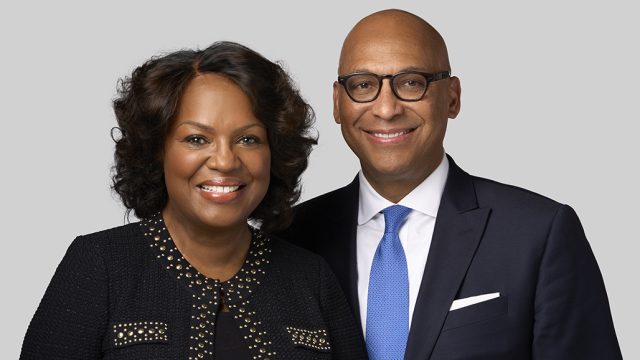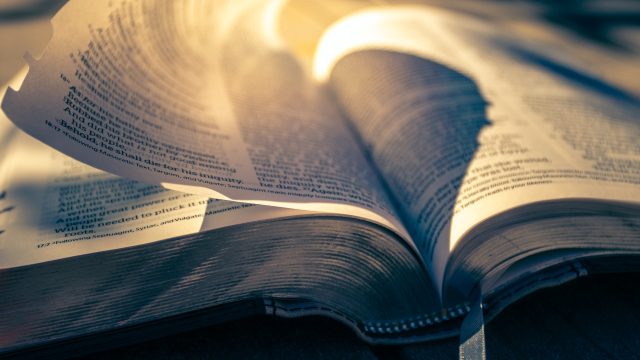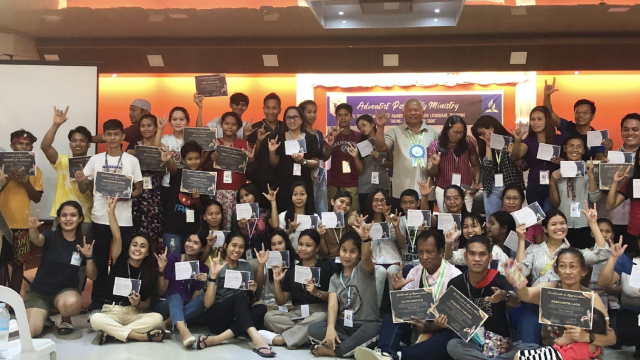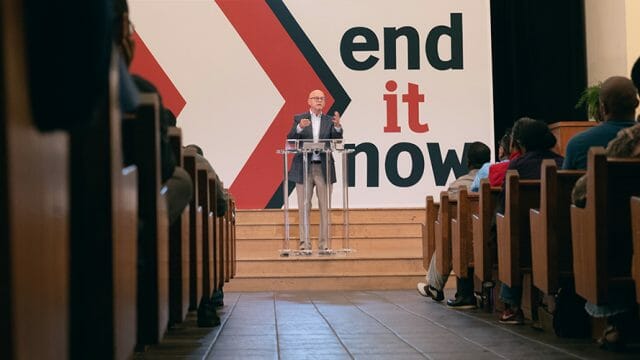COVID-19 and the American Civil War
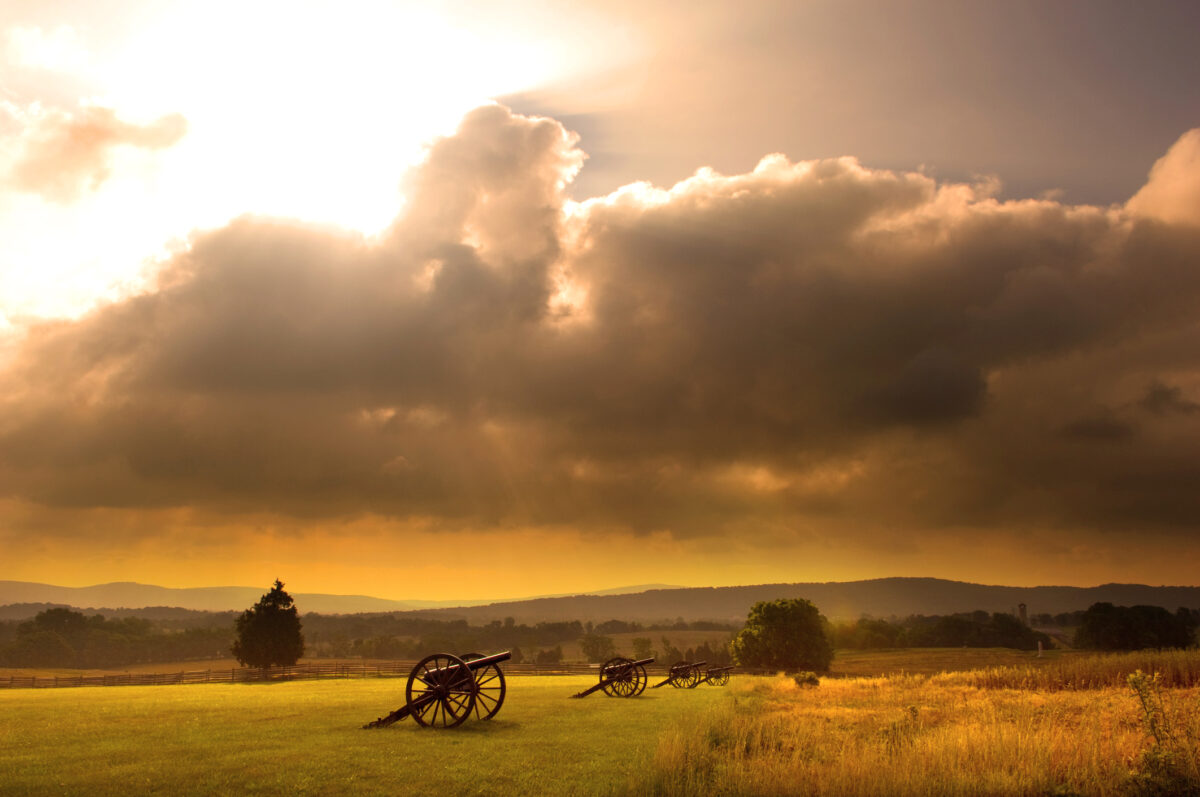
“Hundreds of thousands of brave men have entered the service,” lamented James White in the January 31, 1865, issue of The Advent Review and Sabbath Herald, “and have suffered, and bled and died upon the field of battle, in hospitals, and in southern prisons. Oh! the sum total of human agony which has been wrung from the nation! This causeless rebellion of those whose hands were stained with the sin of slavery, has caused this tide of woe to flow onward for nearly four years! Great God! When will it cease?”1
The American Civil War was grinding on, and James White’s words not only captured the feelings of the Adventist people but of the entire nation. How long, they wondered, would this war continue with its suffering and death, its toll on the American economy, its impact on daily life, and its vice grip on the work of the church?
White’s feelings and the concern of Americans in 1865 strikingly parallel the concerns of many today. How long will the COVID-19 virus paralyze us? How long will the world’s economies remain shut down? How long will we be confined to our homes and discuss the grim reports on the news? How long will we have to practice social distancing and avoid basic human contact? How long will our educational institutions stay closed and our church sanctuaries remain empty for worship? Most important, how long will this terrible virus take the lives of human beings who are not ready to die?2 We, too, cry out: “Great God! When will it cease?”
Our pioneers believed that God had answered their prayers and provided a “visible manifestation of his hand in our national affairs.”
On February 21, 1865, The Advent Review and Sabbath Herald extended a call to all the churches and scattered believers to “set apart four days commencing Wednesday, March 1, 1865, and continuing till the close of the following Sabbath, as days of earnest and importunate prayer.”3 As the believers prayed together during these four days, March 1–4, 1865, they specifically pleaded with God to bring an end to the war. A spiritual revival took place, and they felt assurance that heaven heard their prayers. Interestingly, as President Abraham Lincoln delivered his second inaugural address on March 4, Adventists were on their knees praying.
This prayer response of our Adventist pioneers to the Civil War crisis in the spring of 1865 contains a most important lesson for us living through the COVID-19 crisis in the spring of 2020.
The Power of Prayer
Today, as part of the 100 Days of Prayer initiative, supplications are already ascending to God over a myriad of issues. Uppermost are petitions for our loved ones to be protected, for our church and its work, for first medical responders, for local and national leaders, and especially for the sick, the dying, and the grief-stricken families who have lost loved ones to the virus. We certainly pray for wisdom and discernment on how to correctly interpret the events transpiring around us in light of Bible prophecy. But the most important lesson from the prayer response of those Adventists living in the spring of 1865 was their specific and collective prayer for the war to end. Their prayers were persistent, tenacious, and determined.
We are called to pray today in the same spiritual posture for God to exercise His power and cause the pandemic, with all its suffering and misery, to dramatically subside. “It is a part of God’s plan to grant us, in answer to the prayer of faith, that which He would not bestow did we not thus ask.”4 The prayer of faith is one that takes hold of God’s promises in Scripture and prays them back to Him—and gives thanks for the answer.5 One such promise most appropriate for this occasion is 2 Chronicles 7:14: “If my people who are called by my name humble themselves, and pray and seek my face and turn from their wicked ways, then I will hear from heaven and will forgive their sin and heal their land” (ESV).6 The conditions met, we can apply this promise to the COVID-19 pandemic and pray it back to God for healing in our land, for healing in our cities, states, provinces, and nations, and for healing all over the world (Isa. 55:11).
Ultimately, it is God alone who can end this crisis. He alone can provide a breakthrough to the great scientific minds working around the clock to find therapeutics and a vaccine. He alone can stop the virus dead in its tracks without human intervention. Our part is to seek Him and earnestly pray for His dramatic divine intervention. Some might argue that this pandemic should linger to teach the world a lesson, or that it’s the beginning of the final events to transpire on the earth before Christ comes. But out of hearts that yearn for the suffering to end and for the gospel to go forward, we must earnestly pray, like our Adventist forebearers did in 1865, for this crisis to end now.
Within a few eventful weeks after the Adventists prayed for an end to the Civil War during March 1-4, 1865, it was over.7 True, there were many forces that brought the war to its end, not the least being the determination of Lincoln’s leading generals to defeat the Confederacy. But ultimately, our pioneers believed that God had answered their prayers and provided a “visible manifestation of his hand in our national affairs.”8 After all, Ellen White declared at the beginning of the war that “God had this nation in his own hand.”9 Similarly, today, God still has this nation (the United States) and all the other nations of the world in His hand.10 In the midst of this crisis, let’s pray collectively and earnestly that He will act now. And in the process, we can thank God for hearing our prayer and healing the land however He chooses.
1 James White, “Non-combatants,” The Advent Review and Sabbath Herald, Jan. 31, 1865, p. 76.
2 Appropriate for this time is Psalm 13 with its fourfold lament of “How Long” and concluding resolution in verses 5, 6.
3 John Byington and James White, “The Time Has Come!” The Advent Review and Sabbath Herald, February 21, 1865, p. 100.
4 Ellen G. White, The Great Controversy (Mountain View, Calif.: Pacific Press Pub. Assn., 1911), p. 525.
5 See Ellen G. White, Education (Mountain View, Calif.: Pacific Press Pub. Assn., 1952), pp. 253, 257, 258; see also Joel R. Beeke and James A. La Belle, Living by God’s Promises (Grand Rapids, Mich.: Reformation Heritage Books, 2010), pp. 65-70.
6 Scripture quotations marked ESV are from The Holy Bible, English Standard Version, copyright © 2001 by Crossway Bibles, a division of Good News Publishers. Used by permission. All rights reserved.
7 See Jud Lake, A Nation in God’s Hands: Ellen White and the Civil War (Nampa, Idaho: Pacific Press Pub. Assn., 2010), pp. 240-243, 447-449.
8 Uriah Smith, “The Prospects of Peace,” The Advent Review and Sabbath Herald, April 11, 1865, p. 148.
9 Ellen G. White, Testimonies for the Church (Oakland, Calif.: Pacific Press Pub. Assn., 1885), vol. 1, p. 267.
10 See Lake, A Nation in God’s Hands, pp. 455, 456.


